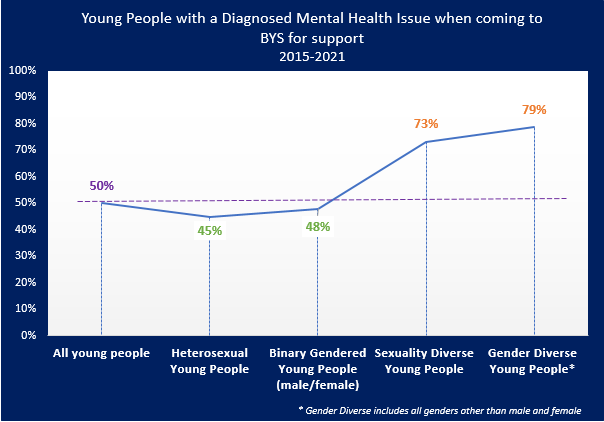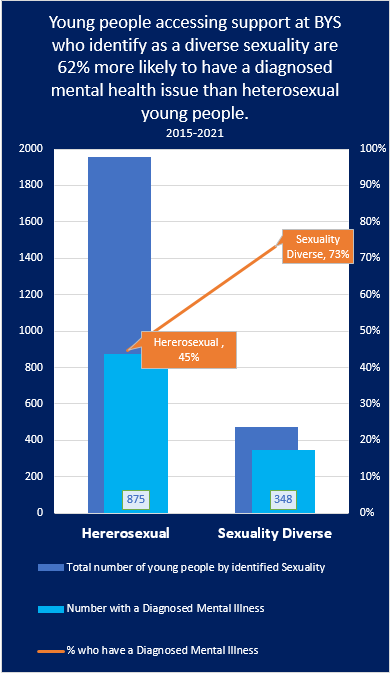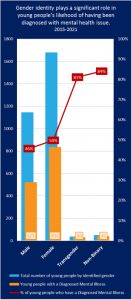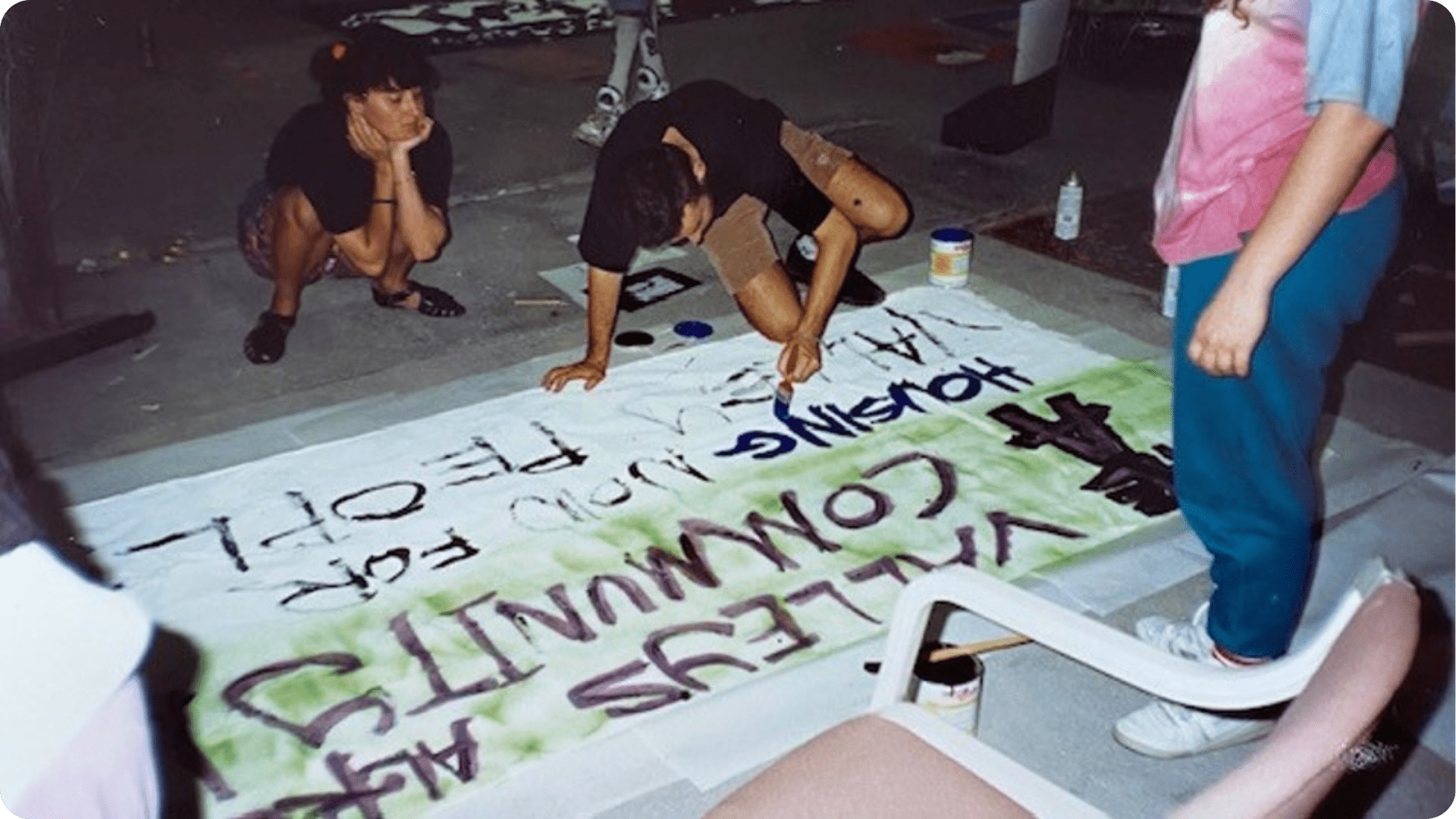LGBTQIA+ young people account for one in four people supported by Brisbane Youth Service (BYS)* and are twice as likely to experience homelessness and have higher rates of family and intimate partner violence and poor mental health than their cis-heterosexual peers**.
A six-year analysis (table 1) shows that while rates of mental health issues for all young people accessing support are very high (50%), sexuality and/or gender diverse young people who are seeking support at BYS are over 60% more likely to be diagnosed with a mental illness than binary gendered young people.
“In 2020-21, BYS reported a 42% increase in engagement with young people identifying as sexuality diverse,” said BYS Acting CEO Ms Mahoney.
“We are seeing greater numbers of young LGBTQIA+ young people experiencing homelessness year on year, and without support, consistently high mental health issues will continue to be a barrier to accessing and maintaining safe and stable housing.”
81% of transgender young people and 84% of non-binary young people already had a diagnosed mental health issue when seeking support from BYS, compared to 19%-26% of the general population of young people in Australia having an identified mental health issue (ABS, 2018).

(Table 1)
Theo Butler experienced homelessness as a teenager and has co-authored several articles around the intersection of homelessness and LGBTQIA+ youth with BYS Research and Evaluation Manager Rhianon Vichta-Ohlsen.
“Being a young person experiencing homelessness can put immense pressure on your mental health. When you add being part of the LGBTQIA+ community, that intensifies,” said Mr Butler.
“It can be hard to feel safe anywhere at any time and that doesn’t necessarily change when you’re seeking support. This only makes living with mental health concerns as a homeless person a more scary and isolating experience.”
Disrupted family support that can lead to violence may mean life outside the home seems a safer choice for queer young people, despite the many risks associated with homelessness.
Many sexually and/or gender diverse young people experiencing homelessness are put at increased risk due to hesitancy seeking support.
“Afraid to ask for help for fear of further discrimination, many compromise their physical and/or mental wellbeing couch surfing or in other forms of unsuitable or unsafe accommodation,” said Ms Mahoney.
“It is crucial to get vulnerable young people housed quickly and safely so we can address mental health concerns and start rebuilding vital support networks,” she said.
Pride Month is an opportunity to shine a light on the disproportionately high rates of mental health issues and homelessness affecting LGBTQIA+ young people, and to advocate for appropriate and adequate supports needed to create safe, inclusive, and secure futures.


Read more about the intersection of homelessness and LGBTQIA+ young people in these articles co-authored by Theo Butler and BYS Research and Evaluation Manager Rhianon Vichta-Ohlsen:
- Finding pride: moving beyond the rainbow in youth homelessness services
- Queer homelessness – the distinct experiences of sexuality and trans gender diverse youth
* Brisbane Youth Service – % of all young people who exited support in 2020-21
**National LGBTI Health Alliance 2020, LGBTI data: Snapshot of Mental Health and Suicide Prevention Statistics for LGBTI people. Retrieved from: https:// lgbtihealth.org.au/wp-content/ uploads/2020/02/2020-Snapshot-ofMental-Health-and-Suicide-PreventionStatistics-for-LGBTI-People-LGBTI-Health
BYS Media Contact: Emily Nunes
P: 0481 558 783 E: enunes@brisyouth.org
• Every June, Pride Month celebrates the diversity of the lesbian, gay, bisexual, transgender, and intersex community
• More than one in four young people supported by BYS identify as LGBTQIA+
• BYS reported a 42% increase in engagement with young people identifying as sexuality diverse in 2020-21
Since 1977, Brisbane Youth Service has been working to create new futures for vulnerable and at-risk young people (aged 12-25 years), providing free, confidential services including: crisis and transitional housing; emergency relief; physical and mental health services; alcohol and drug interventions; domestic and family violence support and specialist programs for young women and young families.
